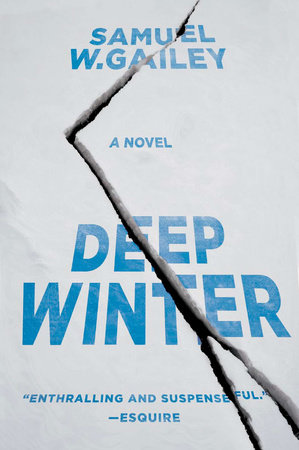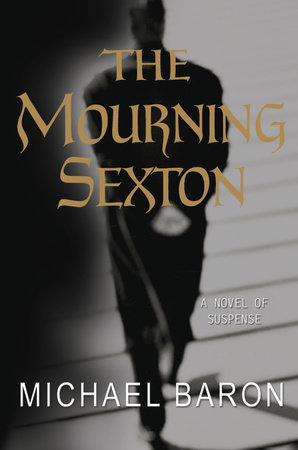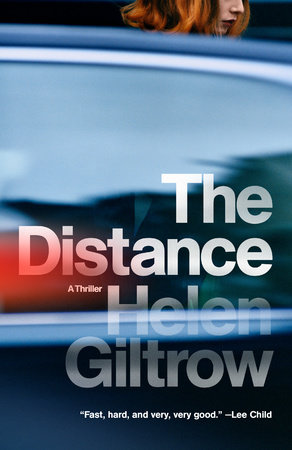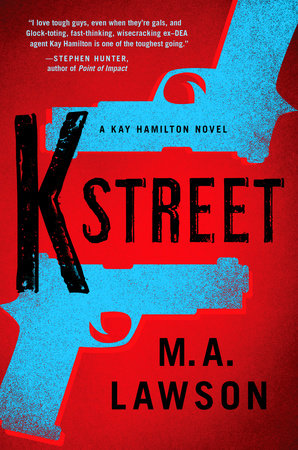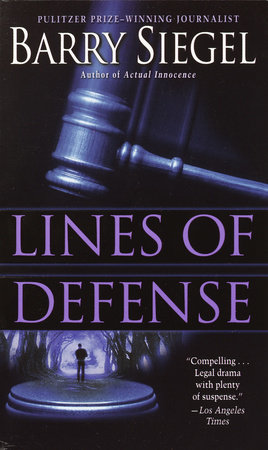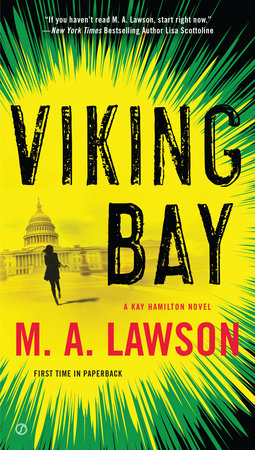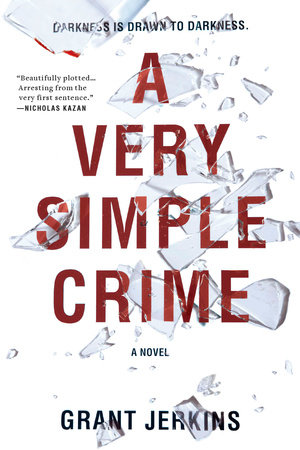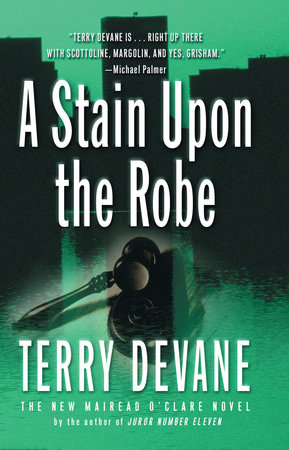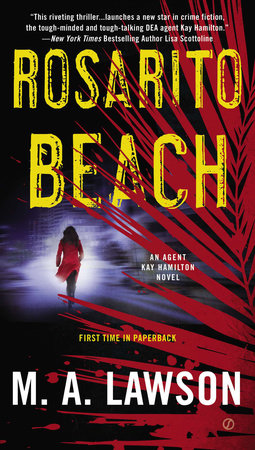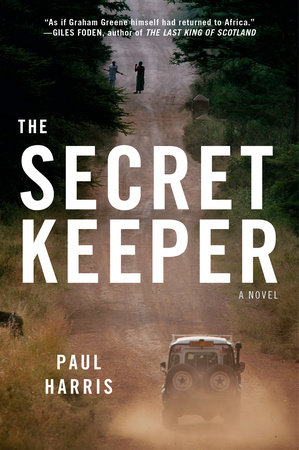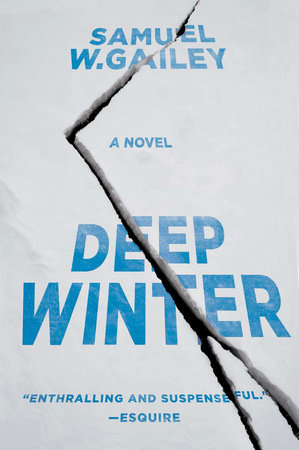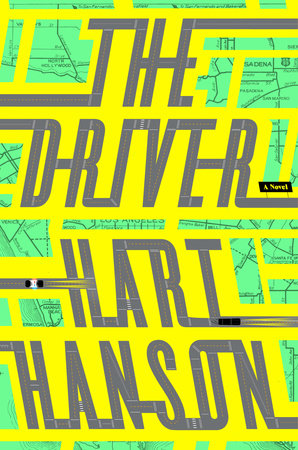Author Q&A
An intimate conversation between husband and wife writers Samuel W. Gailey & Ayn Carrillo Gailey on the crafting and release of Samuel’s debut novel, Deep Winter.
AYN: Your characters deal with personal demons throughout your story. What personal demons of yours helped shape the ones in the book?
SAM: Let’s just say that I didn’t have to do a tremendous amount of research to create some of the characters’ struggles with alcohol and addictions. Fortunately, I’m currently in a place where I let my characters do my drinking for me. I’m Scotch-Irish and have a family history of alcoholism and addiction—some of us have had success in coping with and overcoming these demons. Others not so much. I have conquered a few other challenges in my lifetime, but coming to terms with the fact that I needed to give up drinking was by far my most difficult. I have a few emotional battle scars to attest to that fact. Addiction felt like an unbearably lonely struggle that I faced daily for a phase in my life. Eventually, I hit bottom with a thud. It was there at the bottom that the curtain was finally pulled back, and I realized I didn’t have to go through it alone. So, when it came time to write about damaged characters, I drew upon my own struggles, defeats, battles waged with guilt and remorse, and injected these experiences into a few of my characters. After I got the characters up on their feet, I stepped back to see who would walk and who would fall.
AYN: This first book (Deep Winter) and the manuscripts you’ve finished since this one, are set in places where you grew up on the East Coast. Specifically, rural Pennsylvania and coastal North Carolina. Why not stories set in sunny San Diego or Los Angeles, where you’ve spent the bulk of your adult life?
SAM: Growing up in the country shaped me as a man and established my perspective and approach to life. I was raised in Wyalusing, Pennsylvania (pop. 379), the locale for Deep Winter, until I was eighteen, then spent my college years in North Carolina. For some reason, the years spent in those two places have influenced my writing to a greater extent. They were my “formative” years and there was more conflict during my life then.
AYN: Do you miss living in the country?
SAM: I don’t necessarily miss it, but I like to visit it when I get a chance and I still have a reverence for it. Often, country existence is either stereotyped or patronized by some (in literature, film & television), but I find the people, their philosophies, their passions to be admirable on many levels. AYN: You’ve always been drawn to salt-of-the-earth people. If we’re at an event and you have a chance to speak to a celebrity or the seventy-year-old dairy famer, I know who you are going to befriend. SAM: Yes, I’ve always been drawn to salt-of-the-earth people. My biological dad was a successful businessman, but he was the same way. Men and women who work with their hands—two of the most basic tools we’ll ever have—whether it be using them to milk a cow, to guide a tractor across a field, or to repair a roof, intrigue me. I was raised by a stepfather who worked at Sylvania for 35 years, but every chance he got, he worked with his hands. He was country born and country committed. He instilled in me a moral compass that, although I haven’t always completely been true to, still guides me to this day. He was a hunter, a fisherman, someone that had great respect for the ground he walked upon. He built our home, digging into the earth using his own hands, mixing his own concrete and pouring the foundation of the house. He went down to the Susquehanna River and carried rocks up to build walls, ran all the electrical and plumbing himself. From top to bottom, he built his own home. I’m just so impressed by that.
AYN: Readers are reminded of Heather Gudenkampf’s Weight of Silence when reading Deep Winter. Like her, you use the device of switching and alternating narrative voice and POV to give different sides of a mystery leading up to the climax and resolution. Gudenkampf’s book spent time on both of our bedside tables around the time you started Deep Winter. Do you think it influenced your approach to Deep Winter?
SAM: Yes, for sure. That is a helluva book. Really enjoyed the story, the tension, the mystery, and along with all those things, I was really drawn to her technique (which other authors use as well) of alternating chapters between different characters’ perspectives. Gillian Flynn’s Gone Girl is another example of successfully using this technique. If done right, I find, as a reader, it’s intriguing to watch the story unfold in this manner. Gives the reader the opportunity to glimpse into the conflict with various sets of eyes.
AYN: The most challenging time writing this novel?
SAM: Toss up between actually getting a literary agent and selling it. In my case getting the lit agent was more challenging, even agonizing, than writing the manuscript or selling it to a publisher.
AYN: Yes, agonizing. I still can’t believe it took you almost two years to get a lit agent. I remember the day when you were ready to give up. Thank goodness, you didn’t.
SAM: Aside from the business challenges, I would say the most challenging issue was finding the balance between the narrator’s voice, and the various voices of the different characters. Although the story is not told in first person, I wanted the narrator’s voice to be interesting and compelling, without stepping over the line and disturbing the flow of the story. I considered writing the book entirely from Danny’s perspective, but after an early draft I decided I wanted to open up the narrative so that other characters could carry the story as well. It felt a little too claustrophobic and limited when it was only Danny’s POV.
AYN: Your book let’s us glimpse into the life of hunters and even the life of the game hunted. You grew up learning to hunt in Pennsylvania, but have mentioned it would be difficult for you to shoot any big game now. Can you elaborate on that?
SAM: I enjoyed hunting as a kid. By age 12, I hunted all sorts of game in Bradford County. My step dad’s father was a District Fish Warden and worked with the National Wildlife Federation, so the importance and respect of the land and wildlife was certainly passed down to me. Everybody (boys & girls) starts hunting after their twelfth birthday in that region. It’s a rite of passage and a way of life. We were educated in gun safety and hunting regulations, and were required to complete a hunter’s safety course. We had no mall, no movie theatre, no bookstore, no nothing. What we did have was the woods, a place where we spent a great deal of our time. Growing up, we had an unlocked gun cabinet in the house with various rifles and shotguns, but due to our training in gun safety, I don’t remember an incident where a gun was used for anything other than hunting. We also did not have violent video games—unless you consider Atari games like Asteroids, Centipede and Pac-Man violent. School was closed on the opening days of deer season (for both buck and doe). When school was in session during hunting season, we grabbed our rifle or shotgun after school, headed into the mountains and hunted until dark. I hunted pretty much everything, with the exception of black bear. Squirrel, rabbit, turkey, grouse, pheasant, and white-tailed deer. Out of all of these game animals, the only one I didn’t bag was a turkey. Turkeys, despite all general appearances, are not dumb birds—at least not the ones I hunted. They have tremendous eyesight and are extremely cautious animals.
AYN: Is there a difference between hunting small and large game?
SAM: I shot two deer in my day. A doe and a buck. And, yes, there’s something different, right or wrong, when bringing down a large game animal. You’re killing a two hundred to two hundred fifty pound animal. I believe & support hunting, primarily when the game is also eaten. In areas like Pennsylvania, the game commission closely monitors deer population, sometimes extending hunting season in order to bring the populace down to a ratio that allows for enough food for the deer to carry them through winter. Overpopulation results in starvation, and that’s just not a good way to go. All that being said, I don’t believe I have the desire to pick up a rifle again and hunt large game. Besides that, I don’t particularly want to wake up at 4am anymore and stand around in ten degree weather.
AYN: What topics or emotions in this book were most out of your wheelhouse? Did you research the topics or use consultants?
SAM: I feel like I pretty much kept within my wheelhouse of comfort. I wrote about a place where I grew up, created characters that resembled folks that lived in the area, utilized the hard winters as a backdrop. The murder rate was as close to 0% as you could get, so that was a situation that I fabricated and inserted into the story. But due to Danny’s mental condition as the result of his accident, I did a fair amount of research on brain damage in similar, real-life cases of near drowning. The guns, the drinking, the anger, were issues I felt comfortable with, if that tells you anything. A buddy I grew up with has a brother, Corporal Scott Bennett, in the Field Operations Bureau, and he gave me a crash course in Pennsylvania law enforcement. I also traveled back to Wyalusing a few years ago to revisit my old stomping grounds to help me finish the book. I immersed myself in the town, took walks in the woods, listened to people speak—it lent an authenticity to my book that I was looking for.
AYN: Was the violence in Deep Winter based on things you’ve witnessed or inspired by real life?
SAM: I witnessed plenty of alpha-males going toe-to-toe. Choice words tossed back and forth. Thrown fists, bloodied lips and blackened eyes type of stuff, but not the violence to the degree in the book itself.
AYN: Was it a challenge to write characters who can be so deeply despicable?
SAM: Not at all, actually. I believe most of us are born into innocence, but then it’s our environment that ultimately shapes and defines us. When creating Deputy Sokowski, I didn’t want to merely have a character that was born corrupt. I think like all people that veer off the path of morality, there is a reason for it. Sokowski’s mother abandoned his family when he was a kid. His father took his own life. Sokowski has a physical deformity. All these things manifest and fester, shaping someone like Sokowski, who never had the moral compass to get him back onto a path of righteousness.
AYN: Hardest thing about writing?
SAM: I feel exceptionally fortunate in that regard. The writing process, ups and downs, is something I always enjoy. Up to this point—check back in with me in a few years—I have yet to get any real form of writer’s block. Writing the first draft of my manuscripts is probably my favorite part of the process—I hand write them. I love the freedom of getting away from the computer and relying on only pen and paper. There’s something exceptionally organic to writing free-hand. My thoughts flow differently. No spell-check, no formatting, just ink spilling out onto the page.
AYN: Most satisfying part of the writing or publishing process?
SAM: Validation is seriously underrated. A story sits in your head for so long, that after it’s finally down on paper, you just don’t know how folks will respond. You’ve been isolated for a long time, so watching the progression of important people in my life read & like the story, has been extremely rewarding. Starting first and foremost with you, then Amy Schiffman at IPG (she handles the film rights to my stories), followed by my lit agent Natasha Alexis (Zachary Shuster Harmsworth), and then ultimately to Vanessa Kehren, my editor at Blue Rider Press…it feels good to have these smart, well- read women embrace my work. And, now I’m getting positive reviews and blurbs from authors I truly respect like Urban Waite & Joe R. Lansdale.
AYN: Any fears surrounding the release?
SAM: Aside from everyone hating it, no, I’m pretty good.
